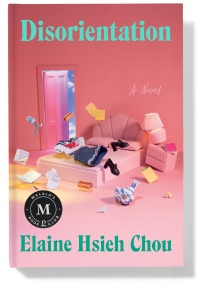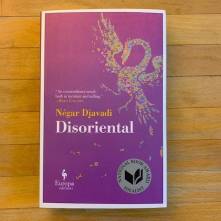 Disorientation–Elaine Hsieh Chou’s debut novel–is a satire of academia covering many issues including mental health, cultural appropriation, identity politics and even White men’s fetishization of Asian women. The novel is often very funny yet also thought provoking, since it deals with issues that have been frequently debated among liberal and left-leaning intellectuals
Disorientation–Elaine Hsieh Chou’s debut novel–is a satire of academia covering many issues including mental health, cultural appropriation, identity politics and even White men’s fetishization of Asian women. The novel is often very funny yet also thought provoking, since it deals with issues that have been frequently debated among liberal and left-leaning intellectuals
When the novel begins, the protagonist–Taiwanese-American Ingrid Yang– is in the eighth year of her PhD in the East Asian Studies department at Barnes University, a (fictional) liberal arts college in Massachusetts. Ingrid is frustrated with her dissertation on the poetry of Xiao-Wen Chou, a canonical Chinese American poet who was also a professor at Barnes for several years. Barnes hosts Chou’s archive and is a major center of “Chouian studies”. The action of the novel really begins when Ingrid finds a note in the archive that seems to yield new clues about Chou’s identity. As Ingrid and her best friend Eunice begin to follow these clues, it leads to the revelation that Chou was not really who he claimed to be.
Identity politics and cultural appropriation are among the novel’s major themes. For example, the POC Caucus of the Postcolonial Studies department, led by Ingrid’s nemesis Vivien Vo, protests the casting of a White actress as a Chinese-American character in one of Chou’s plays. Colorblind casting has recently become more prominent in theater and this would seemingly be a positive development, since it provides more opportunities to non-White actors, particularly in canonical roles. However, there have also been prominent cases of backlash against casting someone of a different race from the character they are portraying. Thus, the incident in Disorientation will make the reader think about whether such casting is always racist or whether it may be progressive in some cases. Should a director cast the best performer for the role or the most racially accurate one? Continue reading “Review: Disorientation by Elaine Hsieh Chou“
 Négar Djavadi’s debut novel
Négar Djavadi’s debut novel